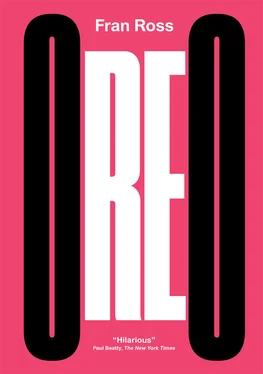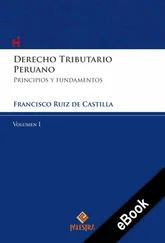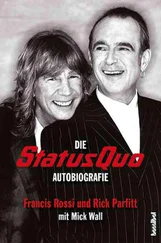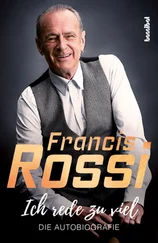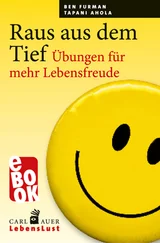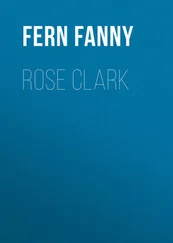LOUISE: Mayhaps if I’m careful, I won’t scrock up dis yere recipe. Las’ time, it turned out right scrockified, dey tell me. I liked it, though. Thought it tayce real good.
JIMMIE C. (gently) : Uncle Herbie can be just a tiny bit scrocky sometimes.
HELEN (by letter) : The TV set in my hotel room just scrocked out.
CHRISTINE: Oh, fuck scrock!
Louise’s dream
When Christine was about two and a half, she got her nickname. It came to Louise in a dream. Louise was walking down a dusty road with Christine on a gray, overcast day, when suddenly the clouds parted and a ray of sunshine beamed down right in front of the child. Out of this beam of sunshine came a high-pitched, squeaky voice. “And her name shall be Oriole,” squeaked the voice.
When Louise woke up that morning, she went straight to her dream book. Next to the word ORIOLE was the number 483. Louise played it in the box for three days. On the third day, it came out and she hit for five hundred dollars, her first hit in more than three weeks (the longest dry spell she could remember). She had told James about her dream on that first day, when she was hosing him off, and he had grinned. She had told her whole family and all her neighbors, as she usually did with her important dreams. Sometimes the entire neighborhood hit if they could figure out what Louise was saying.
Everyone thought that Louise had found a great nickname for Christine. People had been calling the child various things as she toddled down the street after Louise, cursing them under her breath. They called her Brown Sugar and Chocolate Drop and Honeybun. But when they looked at Christine’s rich brown color and her wide smile full of sugar-white baby teeth, they said to themselves, “Why, that child does put me in mind of an Oreo cookie — side view.” And that is how Oreo got her name. Nobody knew that Louise was saying “Oriole.” When, through a fluke, Louise found out what everyone thought she was saying, it was all right with her. “I never did like flyin’ birds, jus’ eatin’ ones,” she said. “But I jus’ loves dem Oreos.” And this time she meant what everyone else meant.
Pets
Naming was very important in the Clark family. Here are two other instances. Herbert Butler, Louise’s wandering brother, brought back a parakeet for the children after one of his journeys. It was powder blue. Only its color (Louise’s favorite) saved the bird from her total disdain (“He ain’ eem a flyin’ bird, jus’ a settin’ one”). Oreo called the parakeet Jocko, Jimmie C. sweetly called him Sky. Louise, because she could not bother to remember either of these names, called him “bird,” not as a name but as a category, just as she called various other pets of friends and family “cat,” “dog,” and “goldfish.” She sometimes had to call all the categories before she got to the right one: “Take dat go’fish… I mean, cat… I say, dog out fo’ a walk.” After two months, in confusion over his true name, Sky-Jocko-bird died, a living (or rather, dead) example of acute muddleheadedness.
That was also the year that Oreo and Jimmie C. had the German shepherd. Everyone said he was the smartest German shepherd anyone had ever seen in the neighborhood. He could do anything — fetch the paper, roll over and play dead, shake hands. He would romp with the children for hours on end, and they would take turns riding on his powerful back. He ran back and forth between the children, his handsome eyes shining, his powerful muscles rippling as he leaped a fence to get a ball Oreo or Jimmie C. had thrown. His papers said his name was Otto, followed by a string of unpronounceable names, but the family decided to call him something else. This time they quickly agreed on a name, one that Helen suggested. They called him Fleck. “A German shepherd should have a German name,” Helen had written to them when the family consulted her, getting her jollies over the fact that she had named the princely German shepherd plain old ordinary Spot.
Louise said, “Dat Fleck, he eat like any starve-gut dog,” and she delighted in fixing him special meat dishes that no German shepherd before him had ever had, dishes like daube de boeuf à la Provençale and kofta kari . Then misfortune struck — or, rather, bit. Fleck got into the habit of biting strangers, and the Clarks had to get rid of him. The whole family was sad. Jimmie C. summed up their feelings when he said, “He was a nice guy, that Fleck. If he could cure himself of that bad biting habit, brought on by homesickness, I’m sure, he might be able to find a suitable flock — maybe out West, where the employment situation for shepherds is better — and be able to bring his wife and children over from the fatherland.”
“Auf Wiedersehen,” said Fleck when it was time to go.
“Ein feste Burg ist unser Gott.” (It was not clear whether he feared Bach or Luther more — the old Rodgers-or-Hart dilemma.)
Oreo and Jimmie C. had to find a new playmate.
Other playmates
One of their playmates was their grandfather. As soon as the children were big enough, they would tumble James to the floor and play with him as if he were a piece of eccentric cordwood. Whenever Louise waxed the kitchen floor, they would get James onto a throw rug and drag him into the kitchen, where they would give him a nice spin and watch him revolve, his half swastika doubling in the shininess.
Once when Louise saw them doing this, she admonished the rambunctious children. “Y’all play nice, you yere me? Hard head make soft behind. Don’ make me nervy. Doct’ say I got high pretension.” She went on fixing the tamago dashimaki she was taking to her friend Lurline at Mercy-Douglass Hospital. She decided to eat the omelet herself, since it would not survive the journey. Then she put on her hat and said, “Now, Oreo, you and Jimmie C. put James back in de lib’m room right now. He had ’nough ’citement fo’ one day. ’Sides, look like to me he right dizzy.” She paused to think. “I greb’mine take the G bus [I’ve a great mind to take the G bus], ’cause it fasta dan dat ol’ trolley. I will cenny be glad to see Lurline on her feet again. Thank de good Lord her sickness not ligament.”
“Malignant,” Oreo said mechanically.
“Moligment,” Louise amended. “Oreo, you in charge. Take care yo’ sweet brother and stay in de back yard.”
The children wiped the excess wax off their grandfather and put him back in his corner in the living room. They went into the back yard to play. Mrs. Dockery, their next-door neighbor, was in her yard watching her brindle tomcat fight with an alley cat. She watched for some time, then she turned to Oreo and Jimmie C. and said, “My cat’s a coward.” Jimmie C. had his fingers in his ears at the time, and he heard Mrs. Dockery’s simple sentence as “Mah cassa cowah.” Jimmie C. was delighted. He decided to use this wonderful new expression as the radical for a radical second language. “Cha-key-key-wah, mah-cassa-cowah,” he would sing mysteriously in front of strangers. “Freck-a-louse-poop!”
Oreo recognized the value of Jimmie C.’s cha-key-key-wah language over the years. For her, it served the same purpose as black slang. She often used it on shopkeepers who lapsed into Yiddish or Italian. It was her way of saying, “Talk about mother tongues — try to figure out this one, you mothers. If you guess this word, we’ll ring the changes on it until it means that .”
Whenever they played together, if Oreo thought her brother had said something silly or stupid or sweet, she would make one of her savage “suppose” remarks. Both children had the habit of, in Jimmie C.’s phrase, “jooging” (the o ’s of “good”) in their ears — to get at an itch that ran in the family. Once when they were both doing this, Jimmie C. said, quite seriously, “Let’s put our wax together and make a candle.”
Читать дальше
